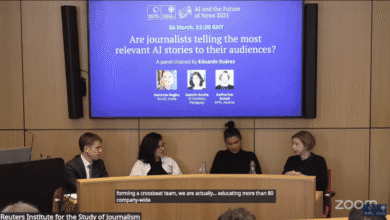Opera Brings AI to Low-Bandwidth Users with Aria Integration in Opera Mini

▼ Summary
– Opera has integrated its AI assistant, Aria, into the Opera Mini browser, bringing generative AI features to low-data, low-resource Android devices.
– Aria, built on Opera’s “Composer” engine and connected to OpenAI’s GPT models, offers real-time web results, text rewriting, question answering, and content summarization.
– Opera Mini has a strong user base in regions with expensive mobile data and limited device storage, making it a significant platform for lightweight AI.
– Aria is optimized for speed and low data use in Opera Mini, ensuring it doesn’t compromise the browser’s performance or data efficiency.
– Opera’s strategy focuses on embedding AI tools natively into its browsers, aiming to make AI accessible and useful for a global audience, particularly in underserved markets.
Opera has integrated its AI assistant, Aria, into the Opera Mini browser—bringing generative AI features to users on low-data, low-resource Android devices. The update reflects Opera’s broader push to make AI a native browser feature across its product line, including Opera for desktop and Opera GX.
What Can Aria Do in Opera Mini?
Built on Opera’s “Composer” engine, Aria connects to OpenAI’s GPT models and can pull real-time web results. In Opera Mini, it offers on-demand help with rewriting text, answering questions, summarizing content, and more—all without compromising Mini’s core value: speed and efficiency on slow or costly mobile networks.
The assistant is accessible from the bottom navigation bar after updating the Android app. There’s no additional installation required.
Why Opera Mini Users Matter in the AI Race?
Opera Mini has a strong user base in markets like India, Nigeria, Indonesia, and other parts of Asia and Africa—regions where mobile data is expensive, and devices often have limited storage. More than 180 million people use Opera Mini monthly. That’s a massive testbed for lightweight AI that doesn’t require top-tier hardware or fast connections.
By extending Aria to Mini, Opera is bringing generative AI to a global audience often overlooked by tech companies focused on premium-tier devices.
Optimized for Speed and Low Data Use
The challenge with AI in data-saving browsers is balancing functionality with performance. Opera says it has tuned Aria for Mini’s lightweight architecture, ensuring it doesn’t drag down speed or inflate data usage. While some features from the desktop version may be trimmed or adapted, users can still ask questions, generate content, and receive contextual suggestions directly inside the browser.
A Strategic Shift Toward Built-In AI Tools
Unlike other AI integrations—such as Microsoft’s Copilot, which exists as a separate chat layer—Aria is embedded natively into Opera’s browsers. This design makes it easier to blend into browsing sessions without switching apps or tabs. It also aligns with Opera’s larger strategy: building helpful AI into everyday tools rather than offering it as a luxury experience.
With a dedicated AI development center now operating in Poland, Opera is clearly betting on integrated AI as a core differentiator.
A Step Toward Inclusive AI Access
Opera’s move marks a meaningful step toward broadening AI availability. While many generative tools remain inaccessible in areas with high data costs or weaker infrastructure, Aria in Opera Mini points to a different direction—AI that’s fast, simple, and doesn’t require the latest hardware.
That could make a real difference in how AI scales globally, especially for users who don’t typically make headlines in the tech world but represent the majority of mobile internet traffic.






